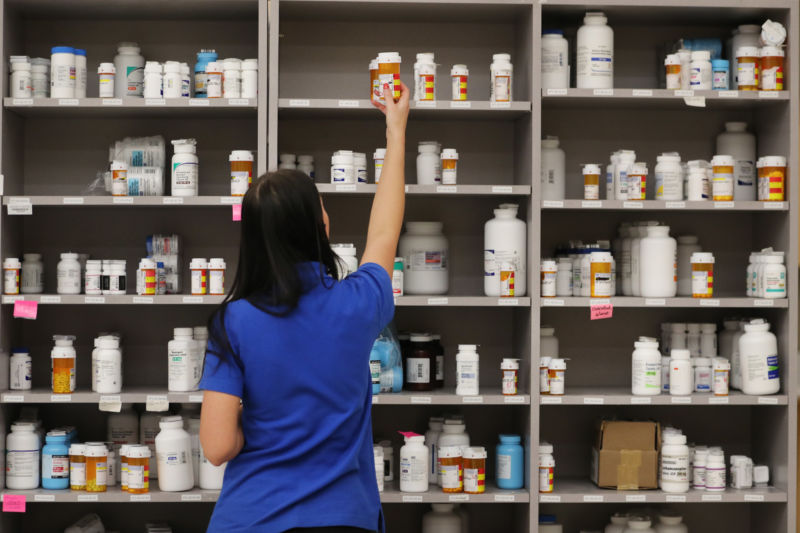
Amazon and Walmart are ramping up their efforts to grab market share in the $360 billion prescription drug market in the US.
Today, Amazon announced that Prime members can receive a six-month supply of several widely prescribed drugs, starting at $6. Many drugs are pricier but are still discounted relative to typical cash prices. And yesterday, Walmart said it would be adding new discounts of up to 85 percent on prescription drugs purchased through its Walmart+ RX service, with an average savings of about 65 percent.
The new announcements come as the retail behemoths have largely failed to disrupt the traditional pharmacy industry. Big names still dominate, with CVS and Walgreens topping the rankings by revenue. Walmart, which has a significant physical footprint for its pharmacies, comes in fifth.
Amazon has yet to make a dent, not even cracking the top 15, and the e-commerce retailer’s ambitions have been further stymied by the fact that retail pharmacy locations have thrived recently relative to mail pharmacies. Though the company made waves last year with its announcement of Amazon Pharmacy—some analysts predicted that CVS and Walgreens would be hit hardest by the reveal—the company has been in the prescription drug business for years following its 2018 purchase of PillPack for $753 million. Amazon’s lack of traction in the market is upsetting the narrative that the e-commerce company dismantles every legacy business model it encounters.
That could be why a report last month from Business Insider said that Amazon was looking at opening traditional pharmacies inside its more than 350 Whole Foods locations. But nothing has come of the idea so far, as starting a physical pharmacy is expensive. Each new Whole Foods location would need about three pharmacists and five technicians, in addition to changes in store layouts.
It’s also hard for Amazon to get drugs for lower prices. Most wholesale purchases are made through pharmacy benefit managers (PBMs), which act as middlemen, using purchasing power to negotiate rebates and lower prices from drug manufacturers. PBMs then pass on a portion of those rebates to insurers, though smaller companies and insurers have claimed that they’re not seeing the same savings, which are hard to measure since the rebates are often secret.
Pharmacies then sell to consumers, of course, but the billing differs depending on whether the customer has insurance. If so, the pharmacy charges one pre-negotiated rate and is reimbursed by the PBM at another, lower rate. If not, pharmacies charge the customer a predetermined “usual and customary” cash rate. These rates vary widely, and because PBMs won’t reimburse pharmacies above them, pharmacies have been setting relatively high usual and customary rates. That allows companies like Amazon, Walmart, and GoodRx to claim eye-popping discounts.
Both new plans from Amazon and Walmart allow customers to sidestep insurance altogether, but not PBMs. Walmart’s works much like a typical prescription drug plan. Customers apply for a “savings card” that looks like a prescription drug card issued by Walmart, usable only at its stores or its website. The retailer is working with a PBM, and it appears to be passing on a significant portion of the typical rebates to cash customers who would otherwise pay the higher usual and customary rate.
Amazon is doing the same thing, but it’s attempting to wring out more savings by sending customers drugs in bulk, reducing shipping and handling costs. Not all drugs are available in six-month supplies, and some that are cost significantly more than $6 per month. But some, including the diabetes medication metformin, are available for $1 per month. Customers can still opt to use their insurance if it ends up making the purchase cheaper.
This is Amazon’s second or third attempt to disrupt health care markets, depending on how you count. Its PillPack purchase fed into the company’s robot-enhanced image—the startup distinguished itself by using robots to package all of a customer’s prescription drugs into small daily packets. Amazon also tried to upend the health insurance industry years ago when it founded Haven along with companies like Berkshire Hathaway and JPMorgan. That effort ended in failure this February.
https://arstechnica.com/?p=1771407

